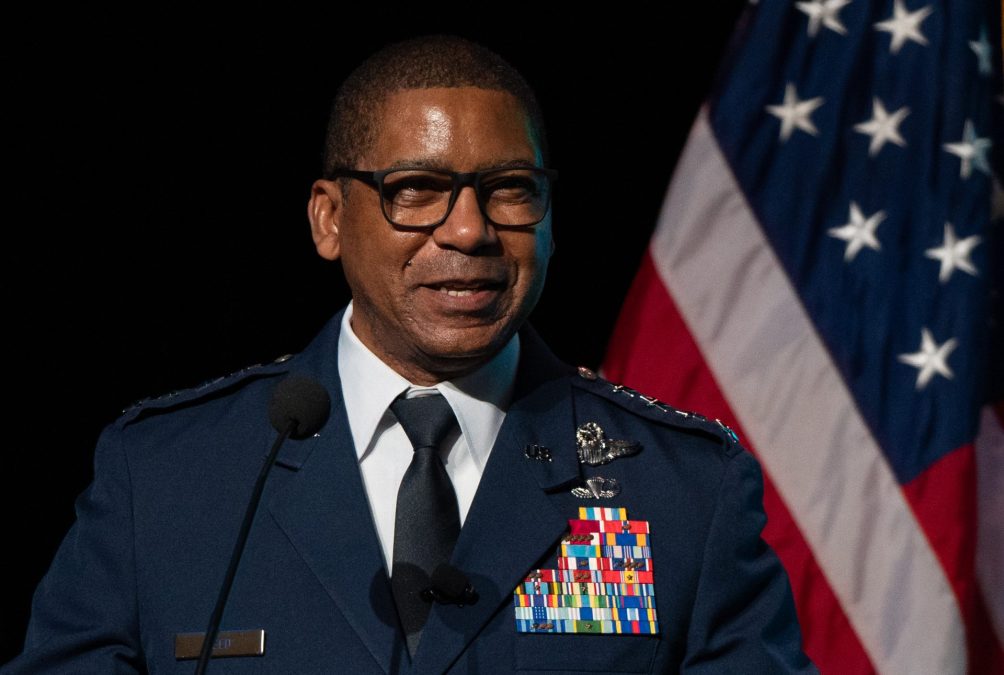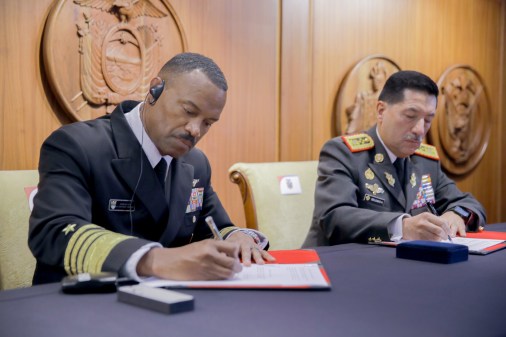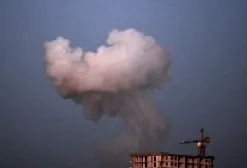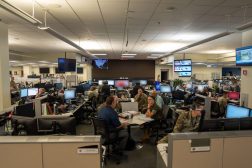Houthi-led disruptions in Red Sea prompt Transcom to expand information-sharing

NATIONAL HARBOR, Md. — Since the onset of the Iran-backed Houthis’ campaign to disrupt global shipping routes with missiles and armed drones in the Red Sea roughly 18 months ago, U.S. Transportation Command has adapted and adjusted how it operates to support the movement of in-demand cargo around the world, according to the organization’s chief.
Transcom commander Air Force Gen. Randall Reed — who took charge about six months ago — shared new details this week about that work and related efforts to expand communications with the command’s military and industry partners as they collectively confront navigation-related risks.
“The Houthis behaving the way they are changes a little bit of [our] behavior from the standpoint that a threat actually exists — and they’re projecting a threat continuously. So, understanding that that’s the case now, you do have to pay attention to that and then see what you can do to actually get around that,” Reed told DefenseScoop on the sidelines of the Sea-Air-Space summit.
The Yemen-based group has launched hundreds of one-way attack drones and missile assaults against U.S. and other nations’ military and commercial vessels since October 2023. Houthi leaders have indicated that the operations largely mark their protest to America’s support for Israel’s military actions in Gaza.
U.S. Central Command has responded with deadly strikes against the Houthis.
Recent maritime data indicates that companies have rerouted their ships to longer sea lanes that require much more transit time, as a result of this conflict.
Prior to taking the helm as Transcom’s commander last year, Reed — a command pilot with more than 3,500 flight hours — led a numbered air force, wing, expeditionary operations groups, and a flying training squadron. He’s also held a variety of joint, headquarters, and base-level roles.
“I mention frequently to folks that logistics, inherently, is a world of disruption, and so something is going to happen somewhere to take you off plan,” Reed said. “There’s always another path. We’re always fighting for multiple ways to get things done.”
What’s unique about the contemporary challenges in and around the Red Sea, he noted, is that Transcom’s close commercial partners that enable some of its most vital mobility missions could be affected, and therefore need to remain informed.
“We have an established structure where we get together twice a year, at least — but when the need arises, we get together to address an issue. In this case, it’s the Red Sea. And so we will gather as much as required. And for a while there, it was about every two weeks where there was information-sharing,” Reed told DefenseScoop.
“We would let them know what we knew. We would let them know the nature of the conflict as we saw it. We would get their concerns, and we would work together to make adjustments so that they could still [operate],” he explained.
A range of military officials connect and exchange information and data with industry leaders and representatives through this hub, which is referred to as Transcom’s “executive working group.”
“As things start out, there’s a level of sharing of understanding — and so folks just share what they know. We get an idea of what the environment is, we talk about the nature of the requirements or the needs, and then if there’s something to overcome, or some adjustment that needs to be made, we discuss that. Then, from there, it’s just professionals having a professional discussion about doing the profession,” Reed said.
During his keynote presentation at Sea-Air-Space, the general noted how, for the American military, logistics and sustainment have presented long-standing challenges for centuries. Now, however, those operations are happening in environments that are becoming more contested.
“In the Red Sea today, we have sailors — both active duty and civilian — who are sailing in harm’s way … and there’s some things that we need to change. So, from a Transcom perspective, this is one reason why you hear us being very vocal about returning to the oceans. This is one reason, when [President Donald Trump] mentioned that we were going to stand up [a U.S. ship-building support] office to figure out this problem, that all of us in this room got a little bit more excited. We all know that there’s several aspects to this. And you will find in me no greater champion and supporter to build for America, to establish supply chains that we depend on, to encourage the generations behind us to take the seas to sail and to help my shipmates get everything that they need to have,” Reed told the audience.
In the interview with DefenseScoop, he confirmed that his speech marked the first time that a keynote address had been delivered by a Transcom commander at the annual Sea-Air-Space summit.
“This is our first time. And before we do any keynotes, we spend a lot of time figuring out — who are we spending time with and why are they taking a chance on having us? And so, part of what we were able to determine and harvest, as was discussed earlier this week here, is that there is now a different national conversation in progress on maritime power,” Reed said.
“Obviously, that is a huge bulk of the capability that Transcom provides, although it’s not just organically, but with the commercial industry as well. And so everything that is currently swelling, we are right in the middle of it. We’ve been there, we’ve discussed it all along. And so, we have a lot to contribute,” he told DefenseScoop.






